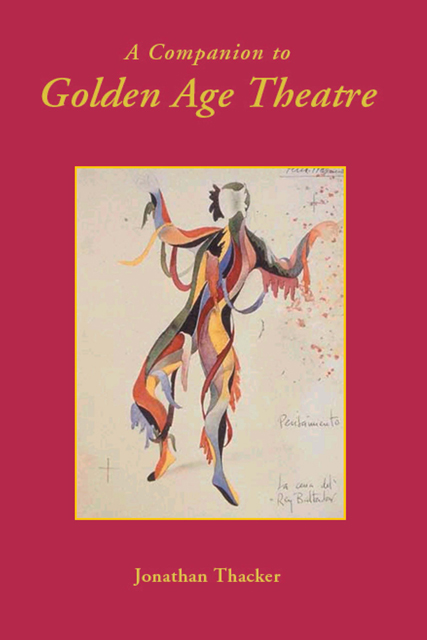Book contents
- Frontmatter
- Contents
- Dedication
- Foreword
- List of Abbreviations
- Introduction
- 1 The Emergence of the Comedia nueva
- 2 Lope de Vega
- 3 Cervantes, Tirso de Molina, and the First Generation
- 4 Calderón and the Comedia's Second Generation
- 5 Staging and Performance
- 6 Types of Comedia and Other Forms of Theatre
- 7 A Brief History of Reception
- Appendix 1 Verse Forms
- Appendix 2 English Translations of Golden Age Plays
- Suggestions for Further Reading
- Bibliography
- Index
Appendix 1 - Verse Forms
Published online by Cambridge University Press: 09 May 2023
- Frontmatter
- Contents
- Dedication
- Foreword
- List of Abbreviations
- Introduction
- 1 The Emergence of the Comedia nueva
- 2 Lope de Vega
- 3 Cervantes, Tirso de Molina, and the First Generation
- 4 Calderón and the Comedia's Second Generation
- 5 Staging and Performance
- 6 Types of Comedia and Other Forms of Theatre
- 7 A Brief History of Reception
- Appendix 1 Verse Forms
- Appendix 2 English Translations of Golden Age Plays
- Suggestions for Further Reading
- Bibliography
- Index
Summary
The fact that Golden Age drama is written in verse is the first thing that a student will notice when beginning to read a play from the period. However, versification is the least discussed of the important aspects of the comedia nueva. Poetic drama has not been in fashion for some time and can seem daunting to a new reader, especially when it is polymetric and so obviously lacks the uniformity of appearance of French classical and Shakespearean drama. Its polymetry has probably acted as an obstacle to the performance of Golden Age theatre both in Spain, where uncertainty about how to speak the verse has been evident, and in other countries, where verse acts as an impediment to translators (see appendix 2).
In fact, once the few rules outlined below have been digested, it is not difficult, even for an inexperienced reader, to tell verse forms apart on the page. What is harder to recover is the Golden Age audience's apparent ability to hear changes in metre and form and thus be sensitive to the shifts of mood and other subtleties that came with them. Verse forms often changed with the end of a salida or ‘scene’, that is after the stage had briefly emptied, or with a change in the status or objective of the speaker, or of the mood of the dialogue. They do not always have the same functions, and as fashions and personal predilections changed so different dramatists favoured different forms at different times, to the extent (as we have seen) that many of Lope de Vega's plays have been fairly reliably dated by the preponderance of certain types of verse within them.
Inevitably the starting place for the discussion of this issue is Lope's Arte nuevo, in which the following lines of advice occur:
Acomode los versos con prudencia
a los sujetos de que va tratando.
Las décimas son buenas para quejas;
el soneto está bien en los que aguardan;
las relaciones piden los romances,
aunque en octavas lucen por extremo.
Son los tercetos para cosas graves,
y para las de amor las redondillas. (Vega, Arte nuevo, p. 17)
The prudence of the dramatic poet, alluded to in the first line here, surely refers to the need for the verse form to match the situation or speaker, so that no offence is committed against decorum.
- Type
- Chapter
- Information
- A Companion to Golden Age Theatre , pp. 179 - 185Publisher: Boydell & BrewerPrint publication year: 2007



